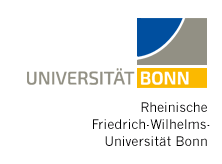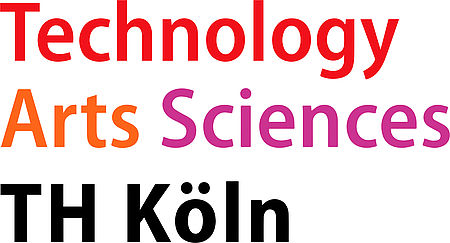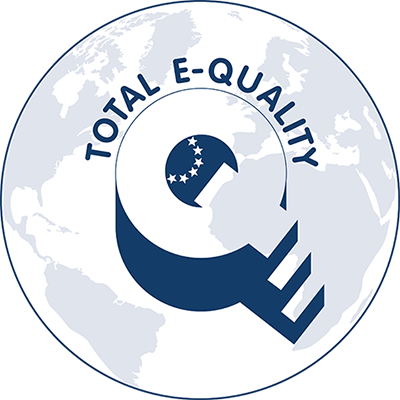ZB MED’s projects focus on developing services to provide practical solutions for specific applications in science and research. By combining innovative market research with its cutting-edge projects, ZB MED seeks to answer key questions such as: Where is research currently heading? What do users expect from a specialist information institution? And how can we determine which trends are relevant?
All the projects carried out at ZB MED have one goal in common, namely that “projects should generate products – or parts of a product”.
We are currently working on the following projects:
AQUAS
AQUAS seeks to combat disinformation in the life sciences using an application based on artificial intelligence. Its goal is to divide previously unseen texts into three categories, classifying them as either science, popular science or disinformation. AQUAS also highlights whether publications comply with the principles of good research practice, thereby providing further clues to possible instances of disinformation.
Base4NFDI
Base4NFDI develops basic services for the entire German science and research community. Unlike other NFDI consortia, Base4NFDI does not focus on a specific set of technical or methodological skills and competencies. Instead, it strives to create a portfolio of interdisciplinary services that will benefit all the NFDI consortia.
-
Basic services with ZB MED participation:
DMP4NFDI - Data management plans for the NFDI
KGI4NFDI - Knowledge Graph Infrastructure for the NFDI
nfdi.software - A research software marketplace for the NFDI
RDMTraining4NFDI - Research Data Management Training for the NFDI
TS4NFDI - Terminology Services for the NFDI
Basisklassifikation - translation
The Basisklassifikation (BK) will be translated into English, reviewed by experts, and published in various formats by fall 2025 to facilitate its international use.
BIONT
BIONT is an international consortium focused on establishing a top-quality training programme and community aimed at fostering digital skills in the life sciences.
BIÖG key concepts
ConnOSS
.
Digital Bioethics
New developments in information technology and data-science methods are revolutionising the field of bioethics. This, in turn, raises crucial questions about the content and methodologies of bioethics as a discipline and about its impact on social science and policy. By addressing these questions, the Digital Bioethics Network aims to lay the foundations for this new field of research in the German-speaking world.
DIM.RUHR
The project is creating a data competence centre for the interprofessional use of health data in the Ruhr metropolis.
DiscoRSE
The project aims to improve the discoverability, usability, accessibility, and interconnectivity of Open Educational Resources in the field of Research Software Engineering while enhancing the visibility of their authors.
Dissify
Deacidification of collections
Books and magazines from the period between 1850 and 1970 are often very fragile due to acid-induced paper decay and must be deacidified to ensure that they remain usable and readable. The project aims to preserve the particularly endangered and valuable holdings of the Hoffmann Collection and the collection of the former Rhineland Chamber of Agriculture through deacidification.
FAIRagro
The consortium FAIRagro was successful in the third funding round of the NFDI. Key objectives include developing standards for data publishing and interoperability based on FAIR data principles as well as developing services – in particular a search portal – and running training and development activities within the expert community.
FAIR4ever
.
GeMTeX
The goal of the GeMTeX project is to collect clinical documentation created in the course of patient care and to prepare it in a machine-readable format that can be used in medical research projects. GeMTeX aims to create the largest anonymised medical text corpus in the German language from clinical documentation provided by six university hospitals.
MAK Collection
The List of MAK and BAT Values of the DFG - an overview of occupational substances hazardous to health - is published by PUBLISSO. Open Access, with search and filter functions and quality assured.
NFDI4DataScience
The NFDI4DataScience consortium is focusing on the development of a research data infrastructure for data science and artificial intelligence. ZB MED is one of 15 partners.
NFDI4Health
Embedded in the national research data infrastructure, a multidisciplinary team of researchers at nfdi4health aims to establish an infrastructure for personal health data. ZB MED is coordinating the consortium.
NFDI4Microbiota
NFDI4Microbiota’s mission is to support the microbiology research community in Germany by providing access to data, data analysis tools, and data and metadata standards, as well as a comprehensive range of training programmes.
NUM Study Network
The NUM Study Network enhances collaboration in clinical studies. ZB MED is developing a connection to the Health Study Hub for central data publication.
OLSPub
ZB MED plans to develop an open, reliable and sustainable alternative to the PubMed database.
PIXLS
Most of the information published on preprint servers does not currently appear in conventional reference and search systems. The goal of this project is to access and index this information in order to make it more discoverable and reusable.
SeDOA
The aim of the Service Centre Diamond Open Access is to support decentralised institutions in improving technical and procedural services and to provide central innovations for the DOA.
sRNARegNet
The sRNARegNet project carries out a comparative analysis of the regulatory networks of small RNA in Gammaproteobacteria. The aim is to find small, regulating RNAs in order to obtain information on their functions and to be able to predict them.
STELLA II
STELLA II is a continuation of the successfully completed STELLA project, which was also funded by the DFG. The project partners are expanding the existing evaluation infrastructure for search and recommender systems.
WAU
The project is creating the new sustainable and up-to-date knowledge base of the AG Universitätsverlage.










